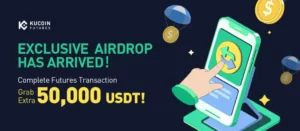
- A crypto crowdsale is a method that blockchain and cryptocurrency projects use to raise capital to secure capital by selling digital tokens through Initial Coin Offerings (ICOs) or token offerings.
- Some countries have embraced ICOs, providing clear guidelines and regulations, while others have banned or heavily restricted them.
- Crypto crowdsales have reshaped how projects raise capital and engage with their communities.
Cryptocurrency has revolutionized the world of finance and investment, offering innovative ways for projects and startups to raise capital. One such method is the crypto crowdsale, Initial Coin Offerings (ICOs), or token offerings. This article aims to provide a comprehensive understanding of what crypto crowdsales are, how they work, their benefits, risks, and the regulatory landscape surrounding them.
What is a Crypto Crowdsale
A crypto crowdsale is a fundraising method used by blockchain and cryptocurrency projects to secure capital by selling digital tokens or coins to a global audience of investors. These tokens are often created on a blockchain platform and are crucial to the project’s ecosystem. They can represent various forms of value, such as ownership, utility, or participation rights within the project.
How Crypto Crowdsales Work
Crypto crowdsales typically follow a structured process:
Project Concept
A blockchain-based project or cryptocurrency startup identifies a need for funding to develop its platform, technology, or product.
Token Creation
The project team creates a new cryptocurrency token, which can be based on an existing blockchain (e.g., Ethereum, Binance Smart Chain) or a custom-built blockchain. These tokens are used for various purposes within the project’s ecosystem.
Whitepaper
The project publishes a detailed whitepaper outlining its goals, technology, use cases, and token sale plan. The whitepaper is a crucial document that provides potential investors with insights into the project’s vision and execution strategy.
Token Sale
The project launches its crowdsale, allowing interested participants to contribute funds. Contributors typically use popular cryptocurrencies like Bitcoin (BTC), Ethereum (ETH), or stablecoins to participate in the sale.
Token Distribution
After the crowdsale ends, the project distributes the purchased tokens to the participants’ cryptocurrency wallets based on the agreed terms and conditions. These tokens can be held, used within the project’s ecosystem, or traded on cryptocurrency exchanges.
Post-Sale Development
The project team uses the raised funds to develop and implement the project according to the roadmap outlined in the whitepaper. This includes building technology, expanding the user base, and achieving milestones.
Benefits of Crypto Crowdsales
Crypto crowdsales offer several advantages:
Access to Capital
Projects can raise funds without relying on traditional financing methods like venture capital or loans, democratizing access to capital.
Global Reach
Crypto crowdsales can attract investors worldwide, expanding the project’s reach and user base.
Token Utility
Tokens sold during crowdsales often serve specific purposes within the project, such as accessing services, participating in governance, or making transactions.
Liquidity
Token holders can trade their assets on cryptocurrency exchanges, providing liquidity and potential price appreciation.
Community Building
Crowdsales often create engaged communities of supporters and users who believe in the project’s mission.
Risks associated with crypto crowdsales
While crypto crowdsales offer numerous benefits, they also come with significant risks:
Lack of Regulation
The absence of comprehensive regulations in the crypto space can lead to fraudulent or low-quality projects.
Volatility
Cryptocurrency markets are highly volatile, and the value of tokens acquired during crowdsales can fluctuate significantly.
Scams and Frauds
Some malicious actors exploit the decentralized nature of crypto crowdsales to carry out scams and fraudulent schemes.
Project Failure
Not all projects that raise funds through crowdsales succeed in delivering their promised products or services.
Legal and Regulatory Risks
Regulatory authorities in various countries have different stances on ICOs and token sales, and non-compliance can lead to legal issues.
Regulatory Landscape
The regulatory landscape for crypto crowdsales varies by country and is continually evolving. Some countries have embraced token offerings, providing clear guidelines and regulations, while others have banned or heavily restricted them. Here are a few examples:
United States
The U.S. Securities and Exchange Commission (SEC) has taken a strict approach to ICOs, considering some tokens as securities subject to federal securities laws.
Switzerland
Switzerland has a regulatory framework that allows for ICOs, provided they adhere to specific guidelines, such as anti-money laundering (AML) and know-your-customer (KYC) requirements.
China
China has banned ICOs and considers them illegal fundraising activities.
Singapore
Singapore has established a regulatory framework for digital token offerings that balance innovation and investor protection.
European Union
The EU has started working on a comprehensive regulatory framework for crypto assets and token sales to provide legal clarity.
South Africa
The regulatory stance in South Africa on ICOs is currently in flux. The South African government has not yet passed any specific legislation regulating ICOs, but it has taken steps to develop a regulatory framework for crypto assets in general.
Both project creators and participants must be aware of and comply with the regulatory requirements in their respective jurisdictions to avoid legal complications.
Due Diligence for Participants
Before participating in a crypto crowdsale, potential investors should conduct thorough due diligence:
Project Team
Research the project team’s qualifications, experience, and track record.
Whitepaper
Carefully review the project’s whitepaper to understand its goals, technology, and use cases.
Roadmap
Evaluate the project’s roadmap and milestones to assess its potential for success.
Community and Support
Engage with the project’s community, forums, and social media channels to gauge support and credibility.
Regulatory Compliance
Ensure the project complies with relevant legal and regulatory requirements in your jurisdiction.
Token Utility
Understand the purpose and utility of the sold tokens and how they fit into the project’s ecosystem.
The Evolution of Crypto Crowdsales
Crypto crowdsales have evolved over the years. Initially, they were simple token sales with limited transparency. Today, many projects conduct security audits, implement multi-signature wallets, and use smart contracts to automate token distribution and governance.
New fundraising methods, such as Security Token Offerings (STOs) and Initial Exchange Offerings (IEOs), have emerged, each with its own characteristics and regulatory considerations.
Crowdsales may be the future.
Crypto crowdsales have reshaped how projects raise capital and engage with their communities. They offer exciting opportunities for innovation but also come with significant risks. Project creators and participants must approach crowdsales cautiously, conduct thorough research, and stay informed about the evolving regulatory landscape.
As the crypto space continues to evolve, crypto crowdsales will likely remain a prominent method for funding blockchain and cryptocurrency projects, contributing to the growth and development of the digital economy.
- SEO Powered Content & PR Distribution. Get Amplified Today.
- PlatoData.Network Vertical Generative Ai. Empower Yourself. Access Here.
- PlatoAiStream. Web3 Intelligence. Knowledge Amplified. Access Here.
- PlatoESG. Carbon, CleanTech, Energy, Environment, Solar, Waste Management. Access Here.
- PlatoHealth. Biotech and Clinical Trials Intelligence. Access Here.
- Source: https://web3africa.news/2023/09/28/news/how-blockchain-and-crypto-companies-use-crypto-crowdsales-to-capture-the-market/
- :has
- :is
- :not
- a
- About
- access
- accessing
- According
- achieving
- acquired
- activities
- actors
- adhere
- advantages
- africa
- African
- agreed
- aims
- All
- Allowing
- allows
- also
- AML
- an
- and
- any
- appreciation
- approach
- ARE
- article
- AS
- assess
- Assets
- associated
- attract
- audience
- audits
- Authorities
- automate
- avoid
- aware
- Balance
- banned
- base
- based
- BE
- believe
- benefits
- binance
- Binance Smart Chain
- Bitcoin
- blockchain
- blockchain platform
- blockchain-based
- BTC
- Building
- but
- by
- CAN
- capital
- capture
- carry
- cases
- cautiously
- chain
- channels
- characteristics
- clarity
- clear
- CO
- Coin
- Coins
- come
- commission
- Communities
- community
- Companies
- comply
- comprehensive
- conditions
- Conduct
- considerations
- considering
- considers
- continually
- continues
- contracts
- contribute
- contributing
- contributors
- countries
- country
- create
- created
- creates
- creators
- Credibility
- crucial
- crypto
- crypto companies
- crypto space
- crypto-assets
- cryptocurrencies
- cryptocurrency
- Cryptocurrency Exchanges
- cryptocurrency wallets
- Currently
- Custom-built
- decentralized
- delivering
- Democratizing
- detailed
- develop
- Development
- different
- digital
- Digital economy
- Digital token
- digital tokens
- diligence
- distribution
- document
- due
- during
- e
- each
- economy
- ecosystem
- embraced
- emerged
- ends
- engage
- engaged
- established
- ETH
- ethereum
- ethereum (ETH)
- EU
- evolution
- evolve
- evolved
- evolving
- examples
- exchange
- Exchanges
- exciting
- execution
- existing
- expanding
- experience
- Exploit
- Federal
- few
- finance
- financing
- fit
- fluctuate
- FLUX
- follow
- For
- forms
- forums
- Framework
- fraudulent
- funding
- Fundraising
- funds
- future
- gauge
- Global
- global audience
- Goals
- governance
- Government
- Growth
- guidelines
- Have
- heavily
- Held
- here
- highly
- holders
- How
- HTML
- HTTPS
- ICOs
- identifies
- Illegal
- implement
- in
- includes
- informed
- initial
- initial coin offerings
- initially
- Innovation
- innovative
- insights
- interested
- into
- investment
- investor
- investor protection
- Investors
- issues
- IT
- ITS
- jurisdiction
- jurisdictions
- KYC
- landscape
- launches
- Laundering
- Laws
- lead
- Legal
- Legal issues
- Legislation
- like
- likely
- Limited
- Liquidity
- Loans
- Making
- many
- Market
- Markets
- May..
- Media
- method
- methods
- Milestones
- Mission
- must
- Nature
- Need
- New
- numerous
- numerous benefits
- of
- offer
- offering
- Offerings
- often
- on
- ONE
- opportunities
- or
- Others
- out
- outlined
- outlining
- over
- own
- ownership
- participants
- participate
- participating
- participation
- passed
- plan
- platform
- plato
- Plato Data Intelligence
- PlatoData
- Popular
- potential
- price
- process
- Product
- Products
- project
- projects
- prominent
- promised
- protection
- provide
- provided
- provides
- providing
- Publishes
- purchased
- purpose
- purposes
- qualifications
- raise
- raised
- reach
- record
- regulating
- regulations
- regulatory
- regulatory landscape
- relevant
- relying
- remain
- represent
- Requirements
- research
- respective
- restricted
- review
- revolutionized
- rights
- risks
- roadmap
- s
- sale
- sales
- scams
- schemes
- SEC
- secure
- Securities
- Securities and Exchange Commission
- Securities Laws
- security
- Security audits
- security token
- Security token offerings
- Selling
- serve
- Services
- several
- should
- significant
- significantly
- Simple
- smart
- Smart Chain
- Smart Contracts
- Social
- social media
- sold
- some
- South
- South Africa
- South African
- Space
- specific
- Stablecoins
- stance
- started
- startup
- Startups
- stay
- Steps
- Strategy
- Strict
- structured
- subject
- succeed
- success
- such
- support
- supporters
- Surrounding
- taken
- team
- Technology
- terms
- terms and conditions
- that
- The
- The Future
- the world
- their
- Them
- These
- they
- this
- Through
- to
- today
- token
- TOKEN SALE
- token sales
- Tokens
- track
- track record
- trade
- traded
- traditional
- Transactions
- Transparency
- typically
- u.s.
- U.S. Securities
- U.S. Securities and Exchange Commission
- understand
- understanding
- use
- used
- User
- users
- uses
- utility
- value
- various
- venture
- venture capital
- vision
- volatile
- Wallets
- ways
- webp
- were
- What
- which
- while
- Whitepaper
- WHO
- will
- with
- within
- without
- Work
- working
- world
- worldwide
- years
- yet
- Your
- zephyrnet













